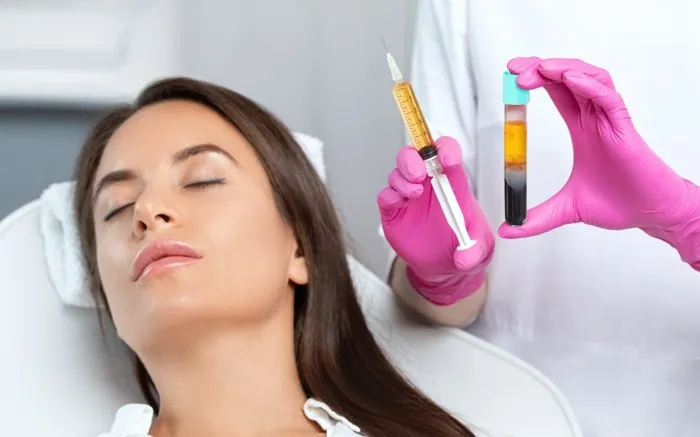In the realm of hair restoration, Platelet – Rich Plasma (PRP) therapy has emerged as a popular and effective solution for many individuals struggling with hair loss. However, when considering PRP treatment, a common question that arises is: what is the best age for it? There’s no one – size – fits – all answer, as the suitability of PRP depends on various factors related to an individual’s age, the nature of their hair loss, and overall health.
Adolescence and Early Adulthood (18 – 25 years old)
Hormonal Changes and Hair Loss
During adolescence and early adulthood, hormonal fluctuations are common. Androgenetic alopecia, or male – and female – pattern baldness, may start to manifest. For some young people, these hormonal changes can lead to premature hair thinning. In such cases, PRP can be a viable option. The growth factors in PRP can stimulate hair follicles, potentially counteracting the early effects of DHT (dihydrotestosterone), the hormone responsible for androgenetic alopecia.
Considerations
However, it’s important to note that in this age group, hair loss may also be due to factors like stress, poor diet, or excessive styling. Before opting for PRP, it’s crucial to rule out these reversible causes. Additionally, young individuals may be more concerned about the cost and time commitment of PRP treatment. Multiple sessions are usually required, and the long – term effects of PRP in this age group are still being studied.
Mid – Adulthood (26 – 50 years old)
Progression of Hair Loss
In mid – adulthood, hair loss often becomes more pronounced. For men, the receding hairline and thinning at the crown may worsen, while women may experience more diffuse hair thinning. PRP can be highly effective during this stage. The growth factors in PRP can stimulate dormant hair follicles, increase hair density, and improve the overall quality of hair.
Physical Recovery
Mid – adults generally have a good capacity for physical recovery. The injection – based PRP treatment is well – tolerated, and the risk of complications is relatively low. Moreover, compared to surgical hair transplant procedures, PRP offers a non – invasive alternative, which is appealing to many in this age group. For example, a 35 – year – old professional dealing with male – pattern baldness may find that PRP helps maintain a presentable appearance, enhancing their confidence in both personal and professional settings.
Late Adulthood (51 years old and above)
Age – related Hair Loss and Health Conditions
As people age, hair follicles naturally become less active, leading to thinner and sparser hair. Additionally, older individuals may have underlying health conditions such as diabetes, hypertension, or cardiovascular disease. These conditions can affect blood circulation to the scalp, further exacerbating hair loss. In some cases, PRP can still be beneficial. By promoting angiogenesis (the formation of new blood vessels), PRP can improve blood flow to the hair follicles, providing them with essential nutrients and oxygen.
Special Considerations
However, in late adulthood, it’s essential to consider the individual’s overall health. Certain medications used to manage chronic conditions may interact with PRP treatment. For example, blood thinners can increase the risk of bleeding during the blood collection and injection process. Therefore, a comprehensive medical evaluation is necessary before proceeding with PRP treatment.
Ideal Age Range for PRP
Late 20s to Early 40s
The optimal age range for PRP treatment is generally considered to be between the late 20s and early 40s. During this period, hair loss patterns tend to stabilize, making it easier for healthcare providers to predict future hair loss and plan treatments accordingly. This age range also allows for more predictable results, as younger patients may experience ongoing hair loss that could alter the effectiveness of the treatment.
Why This Age Range?
Stabilized Hair Loss Patterns: By the late 20s, many individuals have a more predictable pattern of hair loss, allowing for better planning and more natural-looking results.
Sufficient Donor Hair: Individuals in this age range often have a sufficient amount of donor hair, which is crucial for the success of PRP treatment.
Healthier Scalp Conditions: The scalp is generally healthier in this age range, supporting better graft survival and growth.
Tailoring PRP Treatment to Age and Hair Loss Type
Assessing Underlying Causes
Regardless of age, the first step in determining the suitability of PRP is to assess the underlying cause of hair loss. For younger individuals, lifestyle factors like diet, stress, and sleep patterns should be evaluated. In older adults, underlying health conditions and medications need to be carefully considered.
Combining with Other Treatments
PRP can be combined with other hair loss treatments, such as topical medications like minoxidil or oral medications like finasteride (for men). This combination approach can be particularly effective in different age groups. For example, a 40 – year – old woman with female – pattern hair loss may benefit from a regimen that includes PRP injections, minoxidil, and a healthy diet to support hair growth.
Conclusion
There’s no single best age for PRP treatment. The decision to undergo PRP should be based on a comprehensive evaluation of an individual’s age, the cause and extent of hair loss, and overall health. Younger individuals may benefit from PRP to address early – onset hair loss, while mid – adults can use it to manage the progression of hair loss. Even in late adulthood, PRP can offer hope for those dealing with age – related hair thinning. By working with a qualified hair transplant specialist, individuals of all ages can make an informed decision about whether PRP is the right choice for them.
Related topics:
- How Much Effective Is PRP for Hair Loss: What You Need To Know
- The Cost of PRP for Hair Loss: A Comprehensive Guide
- Blood Pressure Medications & Hair Loss: Is There a Connection?


